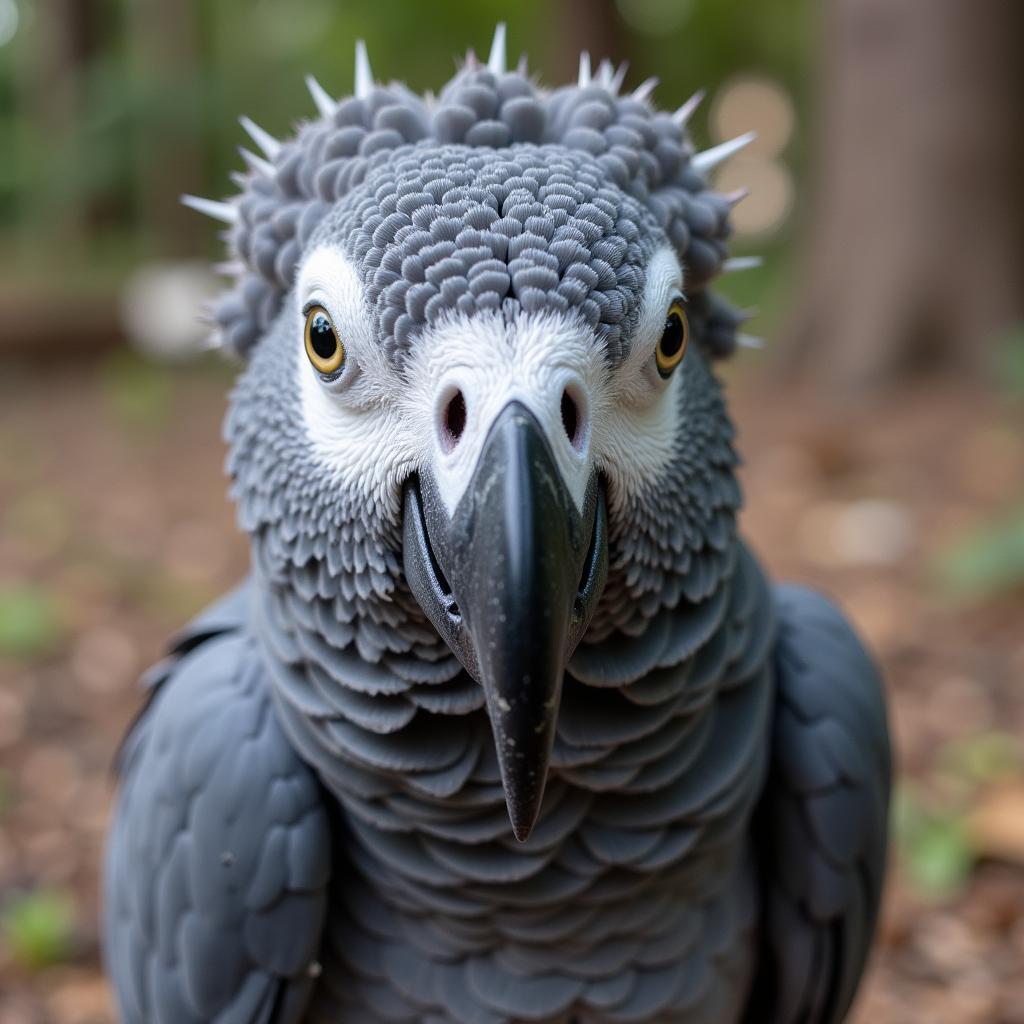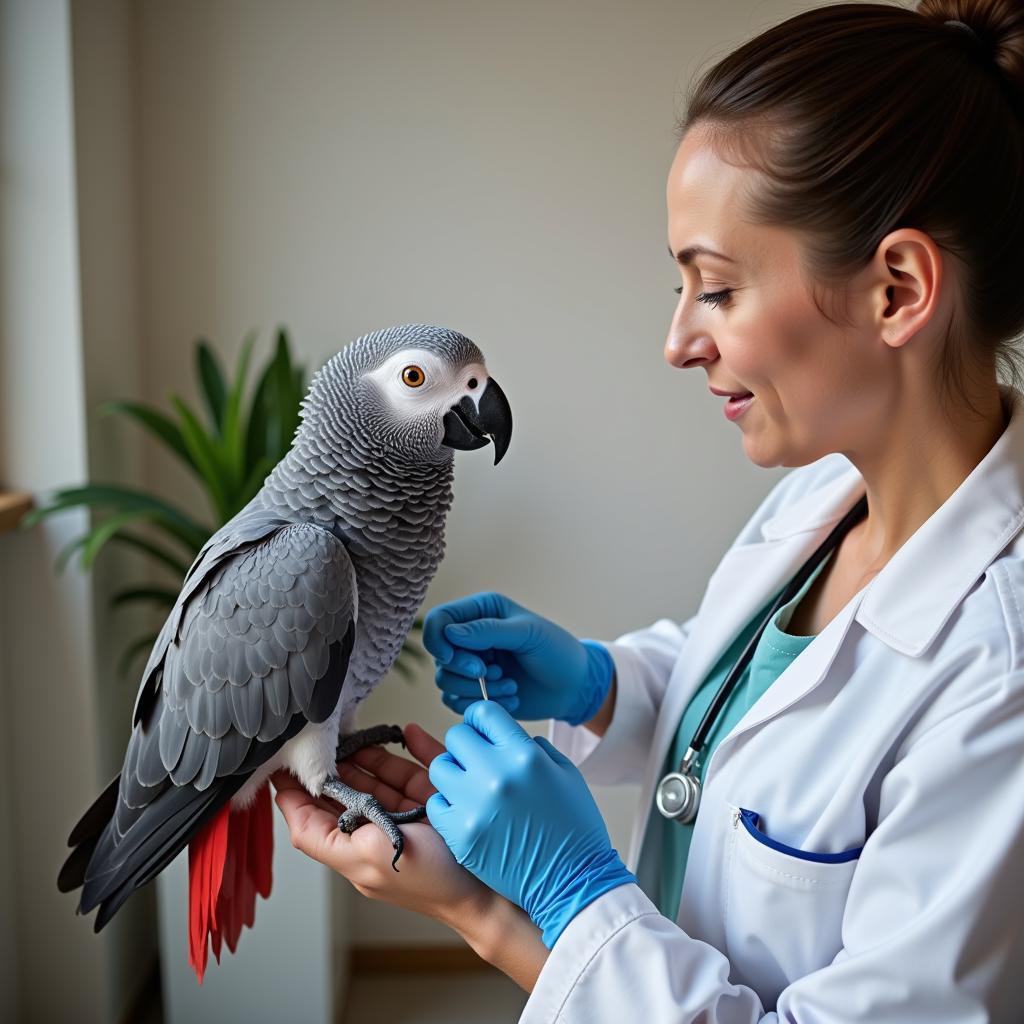Understanding African Grey Parrot Molting Season
The African grey parrot, known for its intelligence and talking ability, is a fascinating creature. Like many bird species, these parrots go through a natural molting season, which can sometimes be a source of concern for new parrot owners. This period of feather shedding is a vital part of their life cycle, signifying growth and renewal.
What is Molting Season?
Molting is a natural process where birds shed old feathers and grow new ones. For African grey parrots, molting usually occurs once or twice a year and can last for several weeks, typically between 6 to 8 weeks but sometimes extending up to 12 weeks. This process is triggered by hormonal changes influenced by factors like daylight hours, nutrition, and overall health.
Signs of Molting in African Grey Parrots
During molting season, you might notice various changes in your parrot’s behavior and appearance. Some common signs include:
- Increased feather loss: You’ll find more feathers than usual in the cage, especially around areas where your parrot frequently rests.
- Pin feathers: These are new feathers covered in a keratin sheath, giving them a spiky appearance.
- Irritability: Your parrot might become grumpy or withdrawn due to the discomfort of new feathers growing in.
- Reduced activity levels: They may seem less playful and spend more time resting.
- Changes in appetite: Some parrots might eat more to support feather growth, while others might eat less.
 Close-up of Pin Feathers on an African Grey Parrot
Close-up of Pin Feathers on an African Grey Parrot
Caring for Your Parrot During Molting Season
Molting can be an itchy and uncomfortable time for your African Grey, but you can do several things to ease the process and keep them comfortable:
- Provide a balanced diet: Offer a variety of fresh fruits, vegetables, and high-quality parrot pellets to ensure they receive adequate nutrition for feather growth.
- Increase humidity: Dry air can exacerbate itchiness. Use a humidifier or provide regular showers or misting sessions.
- Avoid excessive handling: Allow your parrot some space during this time, as they might be more sensitive to touch.
- Offer distractions: Provide stimulating toys to keep your parrot entertained and alleviate boredom.
When to Consult a Veterinarian
While molting is a natural process, it’s essential to monitor your parrot for any unusual symptoms that might indicate an underlying health issue. Consult your avian veterinarian if you notice any of the following:
- Excessive feather loss resulting in bald patches.
- Bleeding or signs of infection around pin feathers.
- Lethargy, loss of appetite, or other signs of illness.
- Behavioral changes such as excessive screaming or feather plucking.
 Veterinarian Conducting a Check-up on an African Grey
Veterinarian Conducting a Check-up on an African Grey
FAQs about African Grey Parrot Molting Season
1. How long does molting season last?
Molting season typically lasts between 6 to 8 weeks for African Grey parrots, but it can sometimes extend up to 12 weeks.
2. Is it normal for my parrot to be grumpy during molting?
Yes, it’s completely normal. New feather growth can be itchy and uncomfortable, leading to irritability.
3. Can I give my parrot supplements during molting?
It’s always best to consult with your avian veterinarian before giving any supplements to your parrot.
4. Should I be worried if my parrot is losing a lot of feathers?
While some feather loss is expected during molting, excessive shedding resulting in bald patches should be addressed by a veterinarian.
5. My parrot seems to be molting more frequently than usual. Is this normal?
If your parrot’s molting patterns change significantly, it’s essential to consult a veterinarian to rule out any underlying medical conditions.
Need More Information?
For more insights into African Grey parrot care and behavior, you can explore these related articles:
Get in Touch
If you have any questions or concerns about your African Grey parrot, don’t hesitate to contact us. Our team is here to provide you with the support you need. You can reach us at:
Phone Number: +255768904061
Email: kaka.mag@gmail.com
Address: Mbarali DC Mawindi, Kangaga, Tanzania
We are available 24/7 to assist you.


